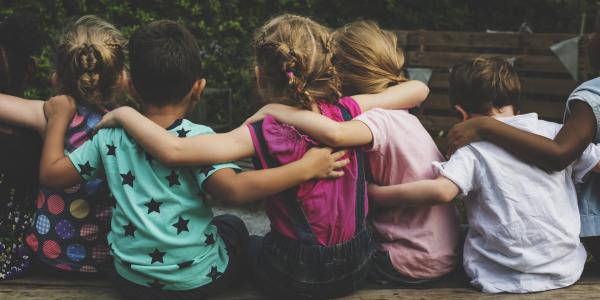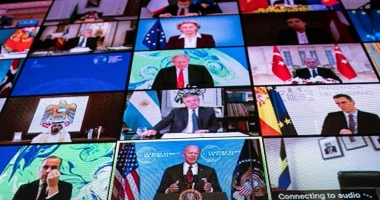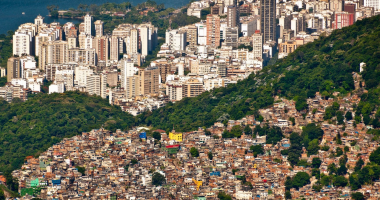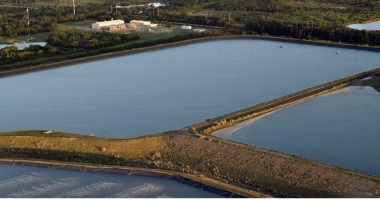Climate, Health and Equity Brief
Dr. Frederica Perera on the Impact of Climate Change on Children
July 16, 2020
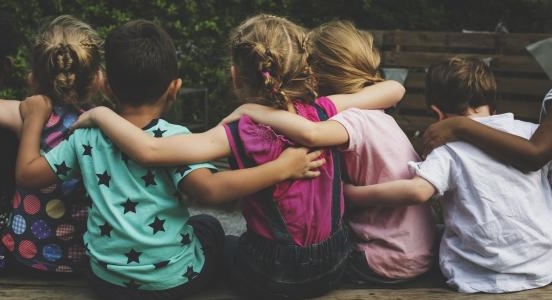
As part of our weekly Climate, Health & Equity Brief, we’re pleased to share a periodic interview series with leaders working at the intersection of climate change, health and equity. This month we spoke with Dr. Frederica Perera, founder of the Columbia Center for Children’s Environmental Health at the Columbia University Mailman School of Public Health.

Your work with the Columbia Center for Children’s Environmental Health (CCCEH) looks at how exposure to environmental toxins and the subsequent development of disease varies across ethnicities and socioeconomic backgrounds. Why is this environmental justice lens so critical – especially when it comes to children?
In my work, I have seen shocking disparities in the health impacts of toxic chemicals, air pollutants and climate change. Not only do communities of color and low-income communities suffer disproportionately high exposures, but stressors due to poverty and racism magnify their effects. The result is a heavy overall burden of disease borne by these communities. That is the first component of environmental injustice. The second is that children bear the brunt because fetal, infant, and child development are highly vulnerable to disruption by toxic exposures and stress. The result: increased risk of preterm birth, low birth weight, asthma, loss of IQ, and behavioral and learning problems that can affect health and productivity over a lifetime. These dual injustices demand new, holistic policies that address inequity and protect the health and wellbeing of all children.
You expanded your research on the health impacts of air pollution on children to calculate the economic costs of these conditions. Why is this important?
Fossil fuels are the root cause of two of the greatest threats to children’s health—toxic air pollution and CO2-driven climate change. Therefore, climate mitigation policies bring major co-benefits from reduced air pollution. Most assessments of the health impacts of air pollution and the corresponding benefits of clean air and climate policies have focused on adults and ignored many critical outcomes in children. To remedy this problem, my colleagues and I have worked to expand the suite of child health outcomes that can be considered in assessing the health benefits of air pollution and climate policies. These include low birth weight, preterm birth, autism, attention deficit hyperactivity disorder, IQ loss, and childhood asthma. We also researched the costs per case for each of these outcomes so the corresponding economic benefits could be calculated as well. We have applied these functions to several climate policies, including the Regional Greenhouse Gas Initiative (RGGI) in nine northeastern states of the U.S., and calculated substantial health benefits for children that avoid large monetary costs. This is good news for children and for society that we hope will spur more such initiatives.
You have written about how the COVID-19 crisis could provide the opportunity for deep, structural changes to make progress on climate change. As we rebuild our economy following the pandemic, how can we ensure that the most marginalized populations are protected against this next global crisis?
During the global COVID crisis we have seen what clean air can look like. We have also seen the deep racial/ethnic inequalities in risk of death from COVID-19, attributable in part to the historically disproportionate exposure to air pollution in low-income communities and communities of color. We are now acutely aware of both the opportunity and the necessity of transitioning to a low-carbon, low-pollution economy that remedies these injustices. This is, in a sense, the silver lining of this terrible crisis: it has given us a loud “wake-up” call and a powerful incentive to take needed action. We know how to do this. The means are at hand and already at work in many communities, cities, and countries to transition from dirty fossil fuels to clean energy and avert climate disaster. Many different expert groups around the world have acknowledged the feasibility of seizing this opportunity, citing policies and initiatives that have been effective and have brought considerable economic benefits. But they all conclude that to be successful, the transition from dirty fossil fuels to clean energy must be done equitably and be inclusive of all communities, especially those that are disadvantaged. If we are wise, we will seize this moment to make the deep changes needed to ensure a just and healthy future for ourselves, our children, and their children.
What is your greatest hope when it comes to our efforts to combat climate change?
That we will seize this opportunity to make the large, needed large changes to address climate change and inequality at its core—fossil fuels. That we heed the science and honor our moral responsibility to protect children and their future, not leaving anybody behind.
Your biggest fear?
That too many people will not understand the gravity of the climate crisis, and will not realize that fossil fuel pollution in all its forms threatens the health and future of their children. Or, if they do understand all this, that they feel powerless to act and simply choose to look away, preferring to continue their lives as usual. In that case, we will be the first generation in human history to knowingly leave our children a dangerous and unhealthy life and future.
What would you encourage others to do to make an impact in the fight against climate change?
Become engaged at any or all levels. All of us—parents, grandparents, schoolchildren, young adults, community members—can join clean air and climate campaigns, lending the power of our voices. We can vote. And we can make individual choices in our diets (switching to foods grown locally, plant-based diets, using cleaner, low carbon modes of transportation). Many people are already making these choices. For example, the demand for e-vehicles and solar panels on homes has grown dramatically in recent years. That is good news for the planet and our children.
I know all this sounds like a tall order. But here is precisely where concern for the health of children plays a big part: in motivating us to advocate for the big changes needed to help rebuild our communities and our economies in a just way.

)

